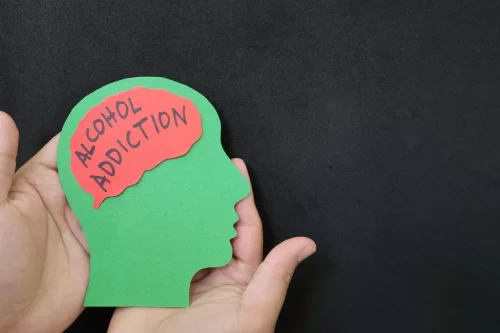
For some people, Ibuprofen may be a way of “numbing” not only physical pain, but emotional pain as well. Taking any medication, including over-the-counter medications, should be discussed with your primary care physician. Over 11% of ibuprofen users take over the prescribed dosage and have the potential to become dependent on the medication, says Angeleena Francis, LMHC, Vice President of Operations at AMFM Healthcare. Many forms of trauma and depression manifest through physical ailments and, without intervention from a licensed therapist, may be misdiagnosed.
Penicillin and Ibuprofen at the same time?
This may lead to the risk of developing a tolerance or dependency on the drug due to feeling as though they cannot function normally without the Ibuprofen. Ibuprofen use can cause a host of uncomfortable side effects ranging from constipation and nausea to dizziness, rashes, itching, and swelling around the eyes, face, and hands. When people take Advil in an effort to relieve swelling, headaches, and pain, and instead experience side effects, they often mistakenly believe that they need a bigger dose to achieve the results they are seeking. If taken more frequently or at a higher dosage than directed, you may experience more intense and additional symptoms once the medication is discontinued.

Chronic Headache
- This will be more of a psychological dependence and patients will be unable to mentally function unless they are able to take this medication.
- One in five U.S. adults (over 50 million Americans) suffer from chronic pain and taking over-the-counter pain medication is typically the first line of defense.
- Lower back pain, chronic muscle pain or tension headaches are some of the reasons why patients require these types of medications.
Meet your chronic illness provider online today and get your medication delivered as quickly as 24 hours later. Many medications contain NSAIDs, and taking multiple https://ecosoberhouse.com/ at the same time could increase your risk of an overdose. When taken appropriately, ibuprofen is typically considered a safe and effective medication.

Alternative drugs to paracetamol and Ibuprofen for fever and headaches?
In some cases, however, patients turn to Ibuprofen as a treatment for chronic pain conditions. Lower back pain, chronic muscle pain or tension headaches are some of the reasons why patients require these types of medications. In order to realize the same alleviating relief, patients will naturally decide to self-medicate with higher and higher doses of Ibuprofen to the point of developing a dependency. In chronic cases, patients will actually have a heightened sense of pain if they stop taking the medication so it is important to avoid the problem in the first place. Treatment for a behavioral or “process” addiction and/or co-occurring anxiety disorder can be very effective at helping people break free of a harmful habit that’s destroying their quality of life.
Someone who misuses this medication may not necessarily have a dependence on it, but that is sometimes the case. Thankfully, if a patient is able to fight through the chronic headaches, they will eventually disappear. These can be quite intense after the first 2 to 3 days but after a week of stopping oral intake of Ibuprofen, patients will start to feel normal again. Patients are recommended to take a maximum of 800mg of Ibuprofen at once and no more than 2400mg of Ibuprofen per day.
Ibuprofen works by inhibiting the production of substances (such as an enzyme known as cyclooxygenase or COX) that cause pain, inflammation, and fever. It is meant for short-term relief of symptoms, and the dose can range from 400mg to 800mg, four times per day. However, it is not recommended to be taken on a daily basis for more than 30 days due to the side effects of COX inhibition on other organ systems. If you or someone you know shows any signs of an ibuprofen overdose, contact your healthcare provider immediately.

How Safe Is Advil?
The FHE Health team is committed to providing accurate information that adheres to the highest standards of writing. If one of our articles is marked with a ‘reviewed for accuracy and expertise’ badge, it indicates that one or more members of our team of doctors and clinicians have reviewed the article further to ensure accuracy. This is part of our ongoing commitment to ensure Can You Get Addicted to Ibuprofen FHE Health is trusted as a leader in mental health and addiction care. Her work spans various health-related topics, including mental health, fitness, nutrition, and wellness. Rather, steroids are stronger medicines that help your body fight off stress after or during an illness. However, they can provide powerful relief, especially for general pains and body aches.

Ibuprofen Abuse Causes, Statistics, Addiction Signs, Symptoms & Side Effects
Saying that “Advil is not habit forming” ignores much of what addiction medicine experts now know about substance abuse, compulsive behaviors, and mental health issues. Left untreated, a severe ibuprofen addiction can lead to serious, long-term health conditions, such as a heart attack or stroke. It can also cause holes or ulcers to form in an individual’s stomach or intestine, as well as lead to liver or kidney damage.

- In chronic cases, patients will actually have a heightened sense of pain if they stop taking the medication so it is important to avoid the problem in the first place.
- In moderate doses and as long as patients do not take this medication daily, 60 percent of patients will respond positively to this medication.
- If you’re worried about misusing it, make sure to follow the instructions on the label (if you’re getting it over the counter) or the dosage guide and directions from your doctor.
- The risk of developing these conditions is higher for those who have been taking ibuprofen for a long time.
- These headaches do not have a malignant origin in nature but are termed as “drug-induced rebound headaches” because our body is not used to functioning without high levels of painkillers in our system.
In many other cases, a dependency on Advil and ibuprofen may be masking anxiety issues that, when treated, can decrease the compulsions to take these OTC drugs. While Advil may be a safer alternative to prescription painkillers, taking too much of it can be dangerous. A recent study by the Cleveland Clinic found that taking more than the recommended dose of ibuprophen-containing medications is more common than you might think. The study looked at more than 1,000 NSAID users and found that as many as 15 percent of them exceeded the maximum recommended daily dose. The important thing to recognize is that Pfizer has chosen to use a very narrow definition of addiction in their corporate communication materials regarding Advil and ibuprofen, Advil’s active ingredient.
- In some cases, however, patients turn to Ibuprofen as a treatment for chronic pain conditions.
- While some ibuprofen medications require a prescription, non-prescription strength ibuprofen is available over the counter at most supermarkets and drugstores.
- As with the entire NSAID family, patients will most likely exhibit chronic headaches when they start to develop a dependence on Ibuprofen.